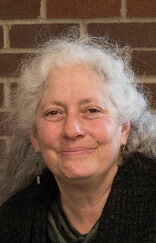Lots of our Healthy Living participants are worried about memory and brain health. Our memory classes get filled immediately with older adults worried about forgetting names, faces, where they put things, etc. There is good news, however, because not only do our memory classes help, but many medical professionals describe how lifestyle changes can have a significant impact on brain health. Not surprisingly, these are the same lifestyle choices that help prevent and improve long-term health conditions like diabetes, heart disease, and chronic pain. It turns out that just as we have the power to positively influence these conditions, we also have the power to limit our cognitive decline. Research has led to the following six pillars of brain health:
Exercise
Regular physical activity helps keep you mentally sharp by increasing blood flow and oxygen to your brain. Experts recommend at least 150 minutes of exercise per week, which can be broken down to 30 minutes per day, five days per week. This exercise guideline includes walking, but can also include strength training, flexibility, and balance activities. We can reach our weekly exercise goals by combining a variety of activities, including household chores, going to the gym, taking a brisk walk, playing pickleball, biking, parking farther away from our destinations, or joining an exercise class such as a yoga, dance, or tai chi class.
Social engagement
Maintaining a robust social life and staying socially connected can bolster your brain function. When you communicate with others, you challenge your mind to interpret verbal and visual cues and respond to them accordingly. Social interaction can also improve your mood and, potentially, ward off depression, which is detrimental to your mental health, as well as your physical and cognitive well-being. Whether it is staying connected to family and friends, taking an in-person or virtual class, attending in-person or virtual book clubs or game nights, or even adopting a pet or pet sitting, all of these social activities can make a positive difference.
Stress management
Research says that high levels of stress in adulthood can contribute to cognitive impairment and dementia. Stress management can include regular exercise, smiling and laughing, distraction using music and reading, and spending time outdoors in green spaces. Other ways to manage stress include confiding in friends, quieting your mind, limiting screen time, taking deep breaths or long walks, yoga or tai chi, and meditation or prayer or listening to guided meditations.
Sleep
Research has found that poor sleep is associated with rapid cognitive decline. Most adults need 7-8 hours of sleep in a 24-hour period. Some suggestions for getting a good night’s sleep are to set and stick to a regular sleep-wake schedule, even on the weekends; to expose yourself to natural (outdoor) light during the daytime; to avoid television, cell phones, and other electronics prior to going to bed; to keep the sleeping room cool; and to use black-out curtains. Meditating or drinking warm milk can also help with sleep.
Nutrition
What you eat has a big impact on your brain. A brain-healthy diet consists of less meat and sweets, plus consumption of more fish, nuts, beans, grains, leafy green vegetables, and healthy fats like olive oil. Recommendations of healthy eating plans for good brain health include the Mediterranean and DASH (Dietary Approaches to Stop Hypertension) diets. In addition to the foods mentioned, eating whole berries and substituting salt with vinegar, lemon, or herbs and spices also supports brain health.
Mental stimulation
Continuing to learn, developing new skills, and embracing new activities can help improve brain health. This doesn’t need to be academic learning, but instead can consist of finding ways to stimulate the brain by staying curious, pursuing new interests, and challenging your thinking. Some people enjoy reading, taking classes, learning a musical instrument or language, practicing complex crafts, or learning a new hobby or skill.
We in Healthy Living understand the challenge of making these lifestyle changes. Our workshops offer the information, motivation, and support needed to make these changes, knowing we have control over our health and remembering that we are not alone. Our workshops are evidence-based, free, and open to people with one or more long-term health conditions (like diabetes, heart disease, arthritis, and chronic pain), as well as their caregivers and loved ones. Some workshops are accessible in person, some by computer, and some by phone.
Here is our Winter 2025 lineup:
-
Living Well with Long-Term Health Conditions (In Person at Athol Hospital)
Techniques such as healthy eating, relaxation techniques, communicating, goal-setting, problem solving, and more, to improve symptoms of chronic conditions.
Thursdays, February 6–March 13, 10 a.m.–12:30 p.m. -
A Matter of Balance—Managing Concerns About Falls (Live Video Conference)
Teaches practical strategies to reduce the fear of falling and explores medical, behavioral, and environmental risk factors for falls, stressing the importance of developing an exercise plan.
Wednesdays, February 5–April 2, 10 a.m.–12 noon. -
Living Well with Persistent Pain (Live Phone Conference)
Provides information and practical skills that build self-confidence and help participants assume an active role in managing problems specific to chronic pain, including fatigue, frustration, and poor sleep.
Tuesdays, February 4–March 18, 3–4 p.m. -
Memory Training (In Person at Northfield Senior Center)
For people with mild age-related memory challenges, Memory Training teaches memory-enhancing techniques and practical strategies to boost memory functioning.
Thursdays, February 6–27, 2–4 p.m. -
Healthy Eating for Successful Aging (Live Video Conference)
For adults hoping to improve their nutrition in order to avoid or live well with chronic conditions, this workshop teaches nutrition basics, label reading, and meal planning, and practices cooking basic recipes to overcome barriers to healthy eating for older adults.
Tuesdays, February 4–March 18, 10 a.m.–12:30 p.m. -
Spanish Diabetes Self-Management (In Person at The Brick House Community Resource Center, Turners Falls, MA)
For adults with pre-diabetes or diabetes, or their caregivers, this workshop teaches the basics of balancing medication and diet and exercise, focusing on healthy eating, exercise, and stress management.
Thursdays, February 6–March 13, 10:30 a.m.–12 noon.
For more information or to register, contact LifePath’s Information and Caregiver Resource Center at 413-773-5555, ext. 1230/978-544-2259, ext. 1230 or icrc@lifepathma.org.





